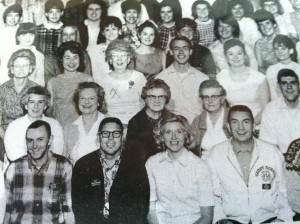“I would not want to bring a child into this world” she said gently, yet emphatically enough to leave no uncertainty about her conviction. She was a student, travelling from her hometown of Ulm to Ravensberg, where she is studying to be an elementary school teacher. Her eagerness to practice English, coupled with our mutual curiosity of each other’s cultures created the recipe for a good long conversation. The train wound it’s way through southern Germany, from east to west, as we spoke of education, politics, environmentalism, and eventually, our respective immigration policies and challenges.
When I told her that my German friend who is a teacher only has work because of the large families that are entering Germany as immigrants fro Turkey, our conversation drifted into discussion of the low birth rates, and late marriages in both of our cultures. That’s when she said that she has no plans to have children – ever. When I asked why, she didn’t hesitate.
“Nature; politics, the economy – everything is broken in our world and getting worse. Children deserve better.”
After this moment of declared cynicism, our conversation ranged in a different direction. “Where’s your family from? How did your parents meet?” Soon we were talking about Italian food, the Cinque Terra, and Christmas traditions. We’d moved from the global and ideological to the personal and experiential.
As she left the train we wished each other a good life and a merry Christmas. She smiled and waved from the platform as I continued on, and my heart ached. “This is the way of it” I thought to myself. I have similar conversations with her generation often, and while most aren’t this explicit, the general sentiment is the same: in a world that is largely broken, and with leaders that largely given evidence of an inability to fix things, young adults are shrinking their world, redefining hope in smaller terms. “I hope I get a job I like – or a job at all.” “I hope it snows this weekend.” “I hope I find someone…” “I hope the Mumford and Sons concert is worth the money” – Life becomes a pursuit of personal experiences that, we hope, will bring us some measure of joy in this fallen world.
None of these are bad hopes, in my opinion. At the same time, none of these are compelling hopes, the kind that will help them live for something greater than the next personal adventure. I find the same tendencies in myself because when I see politicians lying and hurting each other in ways that would be embarrassing even to children, I get tired of hoping for a better world. The hope, it seems, is nothing more than a vain wish, for the evidence that’s all around me points more towards inevitable failure than restoration or recovery.
Ambivalence about hope is worth pondering during advent, because the truth is that things in the Roman Empire at the time of Christ’s birth were much worse than they are now (unless of course, you were part of the 1% instead of the 99%). Mary and Joseph were from families of poverty, living under the thumb of an occupying power that was vicious towards all resistance, overt and covert. Violence, cynicism, sexual anarchy, a rapidly declining birth rate, and a growing disparity between the rich and the poor – Rome had it all. Turns out there is, after all, nothing new under the sun.
But right in the midst of it, God speaks to Mary about pregnancy. The timing of this pregnancy is not good in any way: socially, economically, politically, personally. Katrina’s words were true then too: “Children deserve better”
“No thanks” would have been a legitimate answer to the angel from the lips of Mary if it weren’t for one thing. She was charged with being a vessel through which hope would be born into the world. And because of this, her response was simple enough: “be it done according to your will.” She saw herself as a vessel chosen to give birth hope to the world.
My travels that day eventually landed me in Kandern Germany with both my daughters, and I saw my oldest living into her calling as a teacher, student, servant. I conversed with my youngest during our glorious day in Basel. And then, when it was time to leave them and return to the states yesterday, I hugged them both and cried tears of joy. Hope is being born into the world through both of them, as they live into their callings in Christ.
Bonhoeffer lived as a voice of hope when Germany was going up in flames. So did Sophie Scholl (see my short film about this woman from Ulm here), until the moment of her execution. MLK. William Wilberforce. I’ve come to believe that hope needs to be born into the world, precisely because it’s such a dark place – but hope can’t be fabricated out of thin air, and that’s where Jesus enters the picture. Because of Christ there’s hope that the end of the story is a healed world.
I wanted to share all this with Katrina, but there was no time. She had to get off the train. So I’m sharing it with you instead.











